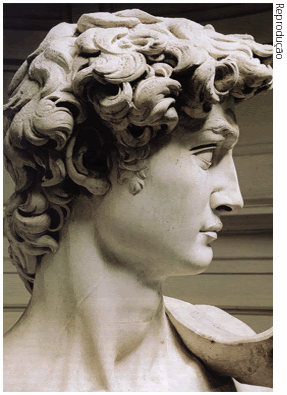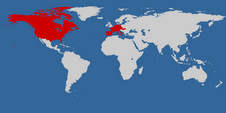
Going through the archives, I could hardly believe I haven't actually posted about books during the whole month of September.
Many things happened, as a matter of fact. I gained new blogger friends, other subjects became priorities, and I tried to post more like a journalist, I'd say, though I don't really feel that thrilled about it, if I don't forget my blog has just been flagged. Why? Well, all I did was cite a government's statement from a press conference and comment on it, of course.
But let's begin the week without polemic issues instead.
Bigots and hypocrites usually don't care much for Literature (or any arts, for what it matters), but they're wrong, oh so wrong… That's precisely where their future lies or, depending only on the perspective, their end begins.
The truth is I did neglect something I cherish so much in life: books. And I had promised you, dear members of «The Happy Few Club», I would carry on with my list of the 50 best novels of the 20.th century. So here they are, the penultimate ten:
André MALRAUX, La Condition Humaine (France)
Roger MARTIN DU GARD, Les Thibault (France)
W. Sommerset MAUGHAM, Of Human Boundage (United States of America)
Veijo MERI, Peiliin piirretty nainen / Woman Drawn on a Mirror (Finland)
Yukio MISHIMA, The Golden Temple (Japan)
Harry MULISCH, De Ontdekking van de Hemel (The Netherlands)
Robert MUSIL, Der Mann ohne Eigenschaften (Austria)
Michael ONDAATJE, The English Patient (Canada)
George ORWELL, 1984 (United Kingdom)
Boris PASTERNAK, Doktor Jivago (Russia)
Autumn evenings are getting longer. On the northern hemisphere, of course.
You guys from down south can start right now settling on your summer readings list…
After blogging there's still some time left for some pages, I'm sure. Enjoy it.
segunda-feira, 9 de outubro de 2006
Some more of my favourite books...
Editado por RIC às 13:14
Separadores:
Literaturas
![]()
Subscrever:
Enviar feedback (Atom)




















14 comentários:
E poesia, sugestões?
E livros para relaxar, daqueles que não são muito exigentes, que dá para ir lendo no comboio?
E literatura gay, detesto o termo, David Leavitt é bom (já mo recomendaram mas li críticas muito pouco favoráveis ao senhor)?
Eu sei que estas perguntas têm pouco que ver com o teu post, mas já que estás numa de sugestões literárias eu resolvi aproveitar, sorry.
Não estou nada de acordo, André! As tuas perguntas têm até muito a ver com o tema geral do post! E agradeço-te por tê-las feito, a sério!
Poesia? Vou procurar e organizar o que encontrar o melhor que puder. Fica a promessa!
Quanto a literatura «light», ainda não há muito designada «de aeroporto» (tinha esse atractivo de convite à viagem...), vais desculpar-me mas ignoro-a. Total e absolutamente! (Pois é, agora estás a dizer: olha como o gajo é pretensioso! Mas nem consigo ler isso, muito menos recomendá-la a alguém...) Para ser sincero, os escaparates das livrarias estão cheios disso. E só dar uma vista de olhos e pegar no primeiro que nos pareça... mais... «sa lá»!
Quanto à que falta, eu prefiro chamar-lhe homófila (o Grego Clássico ajuda muito...) e postei, creio que em Setembro, longamente sobre o nosso Frederico Lourenço. Há quem diga mal dele, mas quanto a Literatura sei do que falo e ele escreve muito bem. Vou procurar a localização dos posts (acho que são dois) e deixo a referência no teu blog, está bem assim?
Já estrangeiros, tenho uma longa lista que vou começar a postar aos poucos. DL é de facto bom. Há franceses traduzidos, ingleses, norte-americaos... enfim, até várias gerações.
Obrigado, André!
Um abraço!
Ric, você conhece Jorge Amado? Um rapaz de Coimbra, boníssima gente, veio fazer intercâmbio na universidade em que estudo aqui no Rio e passou um tempo conosco, e disse que Jorge Amado é muito lido em Portugal.
Conhece o trabalho dele? O que você acha?
Bjs!
=)
Ps.: O que é "alfacinha"?
«Oxente»!!! Ave Maria, Lê! Nem é bom pensar que onde se fala Português haja alguém que ignore Jorge Amado. Para mim, ele é o Prémio Nobel que a língua portuguesa já merecia antes de Saramago. A obra dele é património, por esta ordem, de/a:
Bahia, Brasil, América Latina, Losofonia, Humanidade.
Eu li «Mar Morto» com 15 anos. Claro, a linguagem não era fácil. Mas graças às telenovelas sobretudo da Globo, eu hoje tenho um domínio da norma brasileira que só poderia alcançar vivendo no Brasil. Tenho amigos brasileiros que me disseram isto mesmo.
Para concluir, Jorge Amado faz parte deste meu top 50 do romance do século XX. Como não?
«Alfacinha» é o que nós chamamos a um natural de Lisboa, tal como vocês chamam «carioca» a um natural do Rio.
Abração e beijão!
Felicidades! :-)
I find it *extremely* idiotic and (pardon me) *fascist* that someone would flag your blog for you citing a govenment document and commenting on that document! Are people so afraid of being told their way is wrong? Are they so afraid of the airing of different points of view? Sad! So very sad and pathetic!
=================
I regret admiting that I do not read as much as I used to! I am unfamiliar with most of the books on your penultimate ten list, I'm sorry to admit! Like the movies you recommended last week (which I am seeking), I will try to obtain and read these books.
Failure to learn what others think, watch and read leads to fascism and worse!
Oh Gray! Thank you very much for your most kind words!
You know, one of the worst problems Portuguese in general still have seriously to face is this fascist mentality that prevails yet from the long Salazar's dictatorship... Bigots and hypocrites «think» they solve problems just by sweeping them under the carpet... If they could they would delete my blog - and any other of the kind.
I love being Portuguese - always have! - but I'm truly fed up of so much voluntary ignorance, desrespect, rudeness and lack of culture that devastates our society... The Revolution (1974) brought me great hopes (I was a teenager then), but almost nothing came out of it, now that more than 30 years went by... This is a very sad people indeed... They don't know better and - worse! - they don't want to know better!
As to the books, Gray, I believe this «Top 50» of mine is something you go on reading your whole life through: many of them I want to read again, some I just know they are pieces of History and still want to read. It's my lifetime adventure!
I couldn't agree more with your last sentence!
Best wishes! :-)
You make me feel so illiterate – literature is my weak link.
I sent you a picture.
Now, now, Will... I'm just playing on my field... There's no need to feel like that... Technology is my weakest link.
I'm now going to check that picture!
When I was young (late teens, early 20s) I wanted to learn other languages. Not because I wanted to talk with foreign people, but because I wanted to read foreign books.
My British education was, like everything British, completely useless and taught me nothing about other languages and cultures.
I soon realised how difficult it is to "understand" - rather than just "read" - a book in another language. I could read simple German newspaper articles, but they were as flavourless - and as disconnected - as a shopping list.
Nowadays I can sound educated (or pretentious) by using German terms from Kant and Wittgenstein...and I've walked in the streets of Nice, chanting communist slogans with hundreds of French anticapitalists!
-----
By the way, if you call me "Captain", maybe I should call you "Beautiful"? ;-)
Hello... Captain!
One of these days I was going to tell you why I came to call you so, but the occasion hadn't presented itself. Now it has. Not that I could somehow like that kind of ranks, much on the contrary. The reason is much simpler and also much more personal.
Our greatest poet (after Camões, I admit it), Fernando Pessoa, received a bilingual education in Durban, because his father was the Portuguese consul in that south African town. Years later, he wrote a rather long ode he called «Maritime Ode» celebrating seamen's lives (among other things) and honouring Walt Withman. It's a jewel indeed.
At the University I've learned some parts of it by heart for a especial students performence. One of the lines I'll never forget is as simple as «Oh captain, my captain!...», impregnated of strong tones of melancholy...
As you're English, the connection became quite strong and vivid in my mind. That's why... I don't think you have a similar reason to translate «pulchrus». I do hope you don't, because if you do I shall be forced to go back to Kapitano, which in my ears sounds dreadfully Spanish. In Portuguese the word is «capitão», which means its last consonant is the «t»...
When you use terms in German from Kant or Wittgenstein, or in Latin from Descartes, or in French from Rousseau, I don't believe you're being pretentious at all because that's exactly a part of the philosophical metalanguage. If you translate «Aufhebung» in order to better explain Husserl's phenomenology, you won't go much further with the intention: it's a concept, not just a word...
Your «useless» British education gave you the ability to choose to go through the streets of Nice with French anticapitalists...
Carpe diem!
Thank you!
WHY??? Why do you do this to me, Ric?
Ok, so now I'm searching Pessoa on the internet, and - of course - read "O CAPTAIN! MY CAPTAIN! by WALT WHITMAN".
What next? Do I return to Washington, D.C.'s Library of Congress to read every tome?
I am amazed by your intellect! I honor it and am sublimated by it!
I think I need to return to elementary school. No!! What I *need* is to have a lobotomy and simply start completely over!
Yours in friendship....
Oh Gray, please!... We're just sharing bits of information, that's all. I guess...
In Portuguese we have a saying that goes like this: «As conversas são como as cerejas.» In English: conversations are like cherries. One thing leads to another.
Just drop those grand words, please! I know some things, you know others - that's all.
All you need to do is to try and be as happy as you can! That's what you need to do!
(And that story about lobotomy is just awful. You're reminding me of our Nobel Prize winner in the 40's, I guess, Egas Moniz...)
Ha! Ha!
I love your challenges! Perhaps I should read, "A vida sexual (fisiologia e patologia)!"
As for the "grand words".... I apologize! Sometimes I just reach back into my brain's file drawers and draw out a word or words that have long been forgotten! Thank you for the reminder.
That was not my intention at all, Gray! All I mean by «grand words» is that I feel awkward about eulogies, praises, that stuff. Your words are beautiful, and you should use them whenever you please.
(Check your blog, please!)
Enviar um comentário